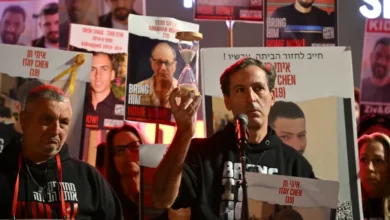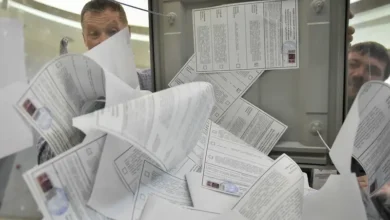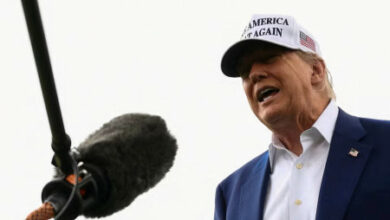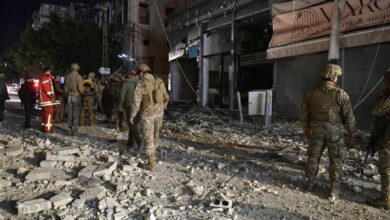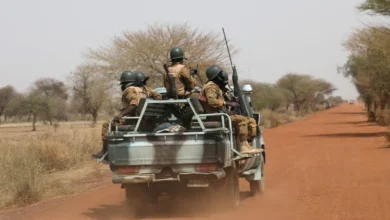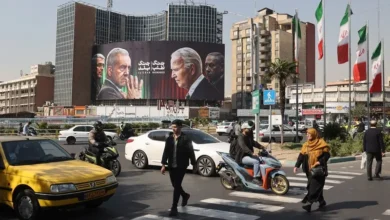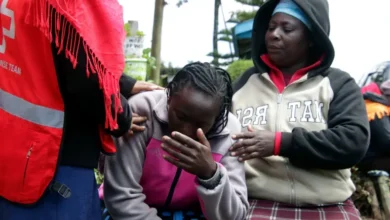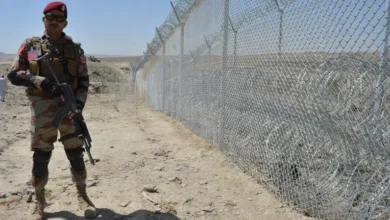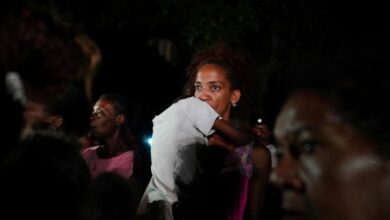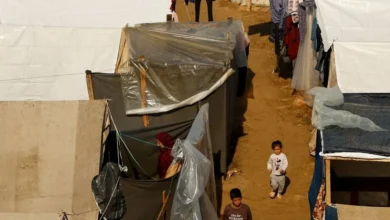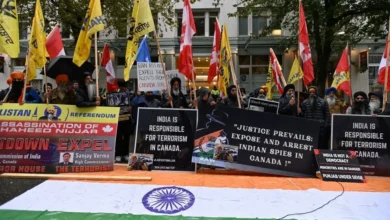Led by ‘plumes of smoke’: How Gaza’s first responders navigate a blackout
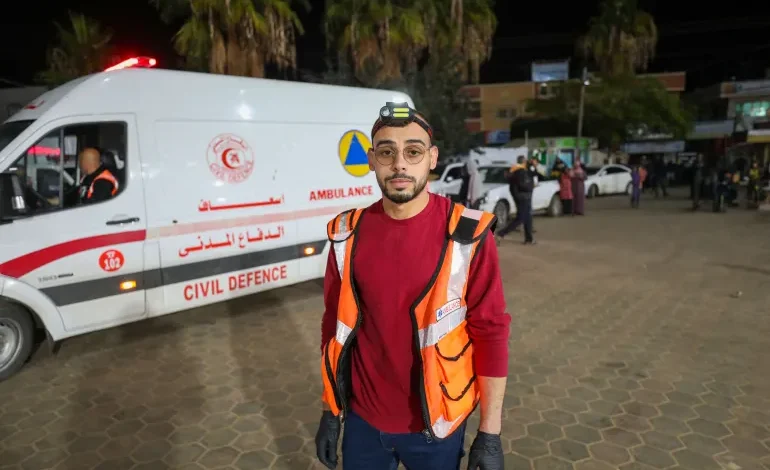
When Youssef Abdullah’s home in the central Gaza Nuseirat refugee camp was hit by an Israeli air strike, killing 17 members of his family on Saturday morning, no one could call the emergency services. Israeli forces had cut off phone and internet services for the fifth time.
The attack was “sudden”, he told Al Jazeera. Two of his children – six-year-old Mohammed and eight-year-old Omar – were among the dead. He, himself, was badly injured.
Apart from head wounds, Abdullah suffered broken ribs, a broken knee and burns on his arm.
“I remember the first thing I saw when I managed to lift my head up, was my wife’s face. Half of it was badly scraped and covered in blood, but she survived,” Abdullah told Al Jazeera. “I hugged her and started frantically calling out for my children.”
Most of his family members killed were women and children, he said. Among them were his mother, sister and nieces, as well as his father and brother. Only seven members of his family survived.
His cousin, Bassam al-Hafy, lives just a few houses down from him in the Nuseirat camp.
Al-Hafy said a neighbour rushed over to inform him of the attack that struck Abdullah’s home so he could “get help”.
With each blackout, Gaza’s government media office has warned that Palestinians who are subjected to attacks are unable to contact civil defence teams amid heavy bombardment.
No one could reach many of those “martyred and wounded”, it said last week.
According to Abdullah, the phone and internet blackout definitely “doubled the number of martyrs” in his family.
“My brother-in-law was alive, but died because medics arrived 45 minutes later,” he said.
This is not uncommon, civil defence workers say.
The blackouts, which rights groups have warned are being used to cover potential Israeli war crimes, have repeatedly prevented medics, first responders and firefighters from reaching areas that have been targeted.
“Two weeks ago there was an attack in Bureij. By the time we arrived, it was a whole hour later, and people waiting at the scene reacted negatively towards us,” Hatem Abu Taqeyeh, a volunteer medic with the Palestinian Red Crescent Society (PRCS), told Al Jazeera.
“They scolded us, asked us why we were so late. But in reality, we simply had no idea this had happened,” the 30-year-old said.
Sounds of explosions in areas further away are “not even heard”, which adds to their “stress and anxiety” every time the enclave plunges into digital darkness, Abu Taqeyeh said.
Many ‘do not make it’
During the first blackout, shortly after Israel launched its latest war on the Strip, Abu Taqeyeh said civil defence teams would conduct what is known as “field checks”, which means driving around neighbourhoods in case they are needed. But doing this has become increasingly difficult for several reasons.
Israel has blocked the entry of much-needed fuel since it imposed a total siege on the already blockaded enclave at the start of the war, and has only allowed a very small amount of aid in through the Rafah border crossing.
“With the lack of fuel … we would only go to a location knowing 100 percent that it had just come under attack,” Abu Taqeyeh said. “Otherwise, we stay put.”
Abdulrahman Basheer, another volunteer medic with the PRCS, said teams cannot coordinate with any international body without internet or phone lines.
The PRCS has repeatedly said it has lost contact with its teams operating on the ground in Gaza amid these blackouts. Other groups, including Doctors without Borders (Medecins Sans Frontieres, or MSF), Amnesty International and several United Nations bodies have also reported being abruptly cut off from their teams in Gaza during network outages.
To work around this, Basheer said members of his team station themselves at the hospital in case injured people start arriving in vehicles other than ambulances.
Israel has blocked the entry of much-needed fuel since it imposed a total siege on the already blockaded enclave at the start of the war, and has only allowed a very small amount of aid in through the Rafah border crossing.
“With the lack of fuel … we would only go to a location knowing 100 percent that it had just come under attack,” Abu Taqeyeh said. “Otherwise, we stay put.”
Abdulrahman Basheer, another volunteer medic with the PRCS, said teams cannot coordinate with any international body without internet or phone lines.
The PRCS has repeatedly said it has lost contact with its teams operating on the ground in Gaza amid these blackouts. Other groups, including Doctors without Borders (Medecins Sans Frontieres, or MSF), Amnesty International and several United Nations bodies have also reported being abruptly cut off from their teams in Gaza during network outages.
To work around this, Basheer said members of his team station themselves at the hospital in case injured people start arriving in vehicles other than ambulances.
Volunteers then ask those coming into the emergency unit about the location and nature of the attack they had just escaped, and quickly lead ambulances to the scene using “wireless devices” or radio transmitters, he said.
In most cases, ambulance vehicles end up following “plumes of smoke or the sound of where the explosion came from”, Basheer said.
‘Our humanitarian duty’
With each blackout, repairs to destroyed phone lines become harder due to repeated Israeli bombardment.
The United Nations Office for the Coordination of Humanitarian Affairs (OCHA) said last month Israeli air strikes targeted several telecommunication installations, destroying two out of three main lines for mobile communication.
Human Rights Watch also found that “actions” by Israeli forces have included damage to “core communications infrastructure”.
Along with a lack of fuel and ambulance vehicles, there is also a severe lack of adequate equipment for civil defence team members who have resorted to rescuing victims from under the rubble with their bare hands.
“We don’t have the right equipment. At the scene [of an attack], we follow sounds, voices of people under the rubble, and the smell of blood,” Abu Taqeyeh said.
